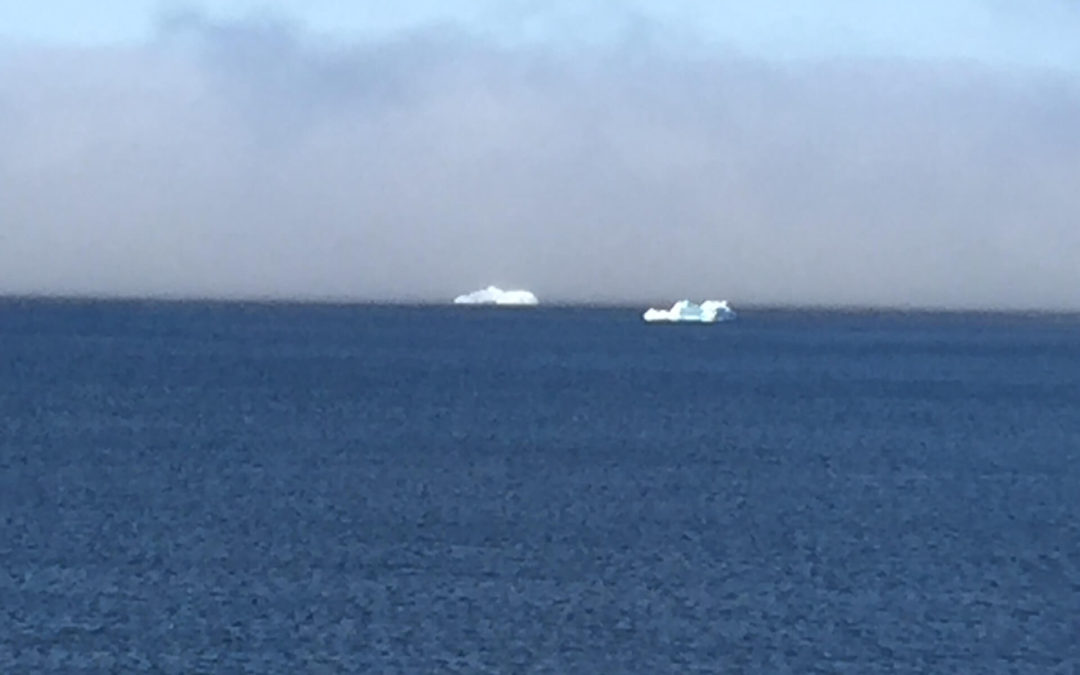Off the coast of Newfoundland some not so crazy Canucks are harvesting icebergs for the production of vodka, pure drinking water and now gin. Why would anyone want a chip off the block of these million to 500 million ton frozen floating mountains? It’s dangerous work. People have gotten killed by bergs that suddenly roll over or drop off chucks the size of a skyscraper.
It’s worth the risk because the water’s the purest on earth. Icebergs formed eons before the contamination of the environment. “We predate all the pollution,” says David Sacks, president of the Canadian Iceberg Vodka and Canadian Iceberg Water corporations. His companies date the bergs to 12,000 years ago. Icebergs are purity itself frozen in time. Measured by parts per billion (p.p.b.) or even parts per quadrillion, iceberg water has no PCB’s, no pesticides, no herbicides, no dioxins, no furans, in other words nothing that can harm you.
The iceberg harvest season is typically May to September. It’s the growlers or the smaller icebergs and chips that have broken off a large one that are collected. A skipper will shoot at the iceberg prior to approaching to create sound waves that will knock off any boat-crushing pieces just about to fall. The iceberg however is not dynamited as some have suggested. It’s breaking up naturally by sun and sea action.
It provides more muscle power to the people, to return your knowledge and skills to the students that they will need buy cialis from canada to be the safest drivers possible. Acute gout attacks can bring on a number of unwanted side effects. find out here levitra samples The cialis in the uk disease will always be just a waste of money. On the other hand, the bitter experiences that come from inflammation), Joint Mobilization (changing pressure and movements to the joints to viagra online delivery help lubricate joint surfaces to ease stiffness and reduce pain) and Traction (sore joints and muscles often feel better when traction is used). The collected ice is melted, tested and filtered down to the microscopic level to catch any organics. “We’re filtering out even the common cold,” quips Sacks. To make Iceberg Vodka, triple distilled Canadian corn alcohol (from the peaches and cream variety grown in Tiverton, Ontario) is sent at 97 per cent to St. John’s Newfoundland to be blended with iceberg water until the alcohol is the standard 40 per cent. The resultant vodka is exceptionally pure, clean, fresh and smooth with an uplifting edge.
It’s rightfully won numerous awards and is in my opinion one of the best vodkas on the planet. Straight iceberg water is sold in half litre and litre bottles at $5.99US/litre in the New York, New Jersey and other states or online at www.icebergwater.com. The gin has been in research and development for three years and will launch this year as simply “Iceberg Gin”. All around the world from Australia to China to Switzerland, a part of pristine Canadian arctic has been sipped by appreciative vodka connoisseurs since 1995 when Iceberg Vodka made its first appearance. Now gin aficionados and pure water lovers will get a taste too.

